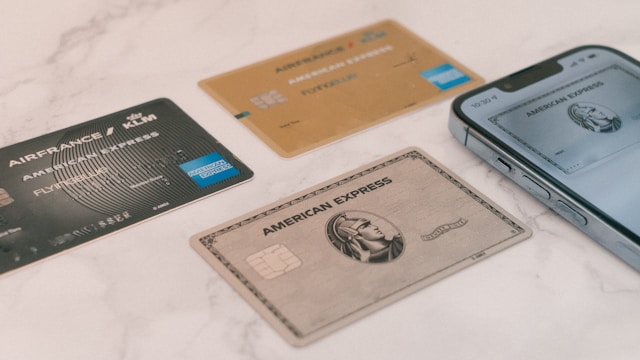Welcome to a journey of financial empowerment and freedom! Are you ready to break free from the shackles of credit card debt and embrace a life of abundance and prosperity? If so, you’re in the right place. In a world where financial stress often weighs heavy on our shoulders, it’s time to reclaim control and rewrite your story.
Imagine waking up each day with a sense of purpose and excitement, knowing that you’re making progress towards a debt-free future. Picture the weight lifting off your chest as you take decisive steps towards financial independence. It’s not just about paying off debt; it’s about reclaiming your power, shaping your destiny, and living life on your own terms.
Join us as we delve into clever strategies and actionable tips to tackle credit card debt head-on. From snowball and avalanche methods to creative budgeting hacks and inspirational success stories, we’re here to empower you every step of the way. Together, let’s turn your financial dreams into reality and build a brighter, more prosperous future.
It’s time to unleash your potential, conquer your fears, and embark on a journey towards financial liberation. Are you ready to take the first step? Let’s dive in and transform your financial landscape one inspired decision at a time. The path to financial freedom awaits – let’s walk it together.
Below we have listed some of the best ways to reduce credit card debt.
- Snowball or Avalanche Method:
- Snowball Method: Start by paying off the smallest debt first while making minimum payments on others. Once the smallest debt is paid off, roll that payment into the next smallest debt.
- Avalanche Method: Prioritize paying off the debt with the highest interest rate first, saving you money on interest over time.
- Balance Transfer:
- Look for credit cards offering a promotional 0% APR on balance transfers.
- Transfer high-interest balances to the new card, but be aware of transfer fees and the APR after the promotional period ends.
- Create a Budget:
- Track your income and expenses to identify areas where you can cut back.
- Allocate a portion of your budget specifically towards paying off credit card debt each month.
- Increase Income:
- Take on a part-time job, freelance work, or gig economy tasks to boost your income.
- Sell items you no longer need or use to generate extra cash.
- Negotiate Interest Rates:
- Contact your credit card company and request a lower interest rate, especially if you have a good payment history.
- Highlight your loyalty as a long-time customer or mention competing offers from other credit card companies.
- Debt Consolidation Loan:
- Apply for a personal loan with a lower interest rate than your credit cards.
- Use the loan to pay off all your credit card debt, then focus on repaying the loan in fixed installments.
- Use Windfalls Wisely:
- Put unexpected income such as tax refunds, bonuses, or gifts directly towards your credit card debt.
- Avoid the temptation to spend windfalls on non-essential items.
- Automate Payments:
- Set up automatic payments for at least the minimum amount due on your credit cards to avoid late fees and penalties.
- Consider automating additional payments towards your debt to ensure consistent progress.
- Credit Counseling:
- Seek assistance from a reputable nonprofit credit counseling agency.
- Counselors can provide personalized debt management plans, budgeting advice, and negotiation strategies with creditors.
- Stay Motivated:
- Track your progress using a visual aid like a debt payoff chart or spreadsheet.
- Celebrate milestones along the way, such as paying off individual credit cards or reaching a certain percentage of debt reduction.
- Remind yourself of the benefits of becoming debt-free, such as financial freedom and reduced stress.
- Credit Card Interest Reduction Negotiation:
- When negotiating with your credit card company, emphasize your loyalty, good payment history, and any hardships you may be facing.
- Be persistent and polite, and consider speaking with a supervisor if the first representative is unable to help.
- Cash-Out Refinance:
- If you own a home with equity, consider a cash-out refinance to pay off high-interest credit card debt.
- This option allows you to replace your existing mortgage with a new one at a lower interest rate, while also withdrawing cash to pay off debts.
- Peer-to-Peer Lending:
- Explore peer-to-peer lending platforms where individuals lend money to borrowers at competitive interest rates.
- Use the borrowed funds to pay off credit card debt, potentially saving money on interest charges.
- Debt Settlement:
- Negotiate with your creditors to settle your debt for less than the full amount owed.
- This option typically requires a lump-sum payment, so be prepared to offer a substantial amount in exchange for debt forgiveness.
- Cutting Expenses Creatively:
- Look for creative ways to reduce expenses, such as meal planning to save on groceries, canceling unused subscriptions, or carpooling to save on transportation costs.
- Consider downsizing your living arrangements or finding roommates to reduce housing expenses.
- Financial Assistance Programs:
- Investigate government assistance programs or nonprofit organizations that provide financial assistance to individuals struggling with debt.
- These programs may offer grants, low-interest loans, or other forms of support to help you pay off credit card debt.
- Financial Windfalls Allocation:
- Strategically allocate financial windfalls such as inheritance, lottery winnings, or legal settlements towards paying off credit card debt.
- Avoid the temptation to splurge on luxury items and prioritize debt reduction to achieve long-term financial stability.
- Mindful Spending Practices:
- Practice mindful spending by distinguishing between wants and needs.
- Before making a purchase, ask yourself if it aligns with your financial goals and whether it’s worth delaying debt repayment.
- Financial Literacy Education:
- Invest time in educating yourself about personal finance, budgeting, and debt management strategies.
- Take advantage of free resources such as books, online courses, or workshops offered by financial institutions and community organizations.
- Seek Professional Advice:
- If you’re overwhelmed by debt or struggling to make progress, consider seeking professional advice from a financial advisor, debt counselor, or bankruptcy attorney.
- These experts can provide personalized guidance based on your unique financial situation and help you develop a comprehensive debt repayment plan.
- Credit Card Rewards Redemption:
- If you have accumulated rewards points or cash back on your credit cards, consider redeeming them to offset your debt.
- Some credit card issuers offer the option to apply rewards directly towards your outstanding balance or provide statement credits.
- Review your rewards program’s terms and conditions to maximize the value of your points or cash back when redeeming for debt reduction.
- While this may not fully eliminate your debt, it can help reduce the overall amount owed and provide some relief on your repayment journey.
As we come to the end of this journey, remember that every step you’ve taken towards tackling your credit card debt is a testament to your strength, determination, and resilience. You’ve faced challenges head-on, made tough decisions, and shown unwavering commitment to your financial well-being.
But this isn’t just the end; it’s a new beginning. Equipped with knowledge, courage, and a renewed sense of purpose, you’re ready to embrace a future filled with infinite possibilities. The journey to financial freedom may have had its ups and downs, but you’ve emerged stronger, wiser, and more empowered than ever before.
As you move forward, continue to believe in yourself and your ability to overcome any obstacle that stands in your way. Stay focused on your goals, stay disciplined in your approach, and never lose sight of the incredible potential that lies within you.
Remember, the road to financial freedom is not always easy, but it’s always worth it. Keep pushing forward, keep striving for greatness, and never forget that you are capable of achieving anything you set your mind to.
So go forth with confidence, courage, and conviction. Your future is bright, your possibilities are limitless, and the best is yet to come. Here’s to a life filled with abundance, prosperity, and the freedom to live on your own terms.
Congratulations on taking control of your finances and unlocking the door to a brighter, more fulfilling future. The world is yours for the taking – go out and make it extraordinary.



